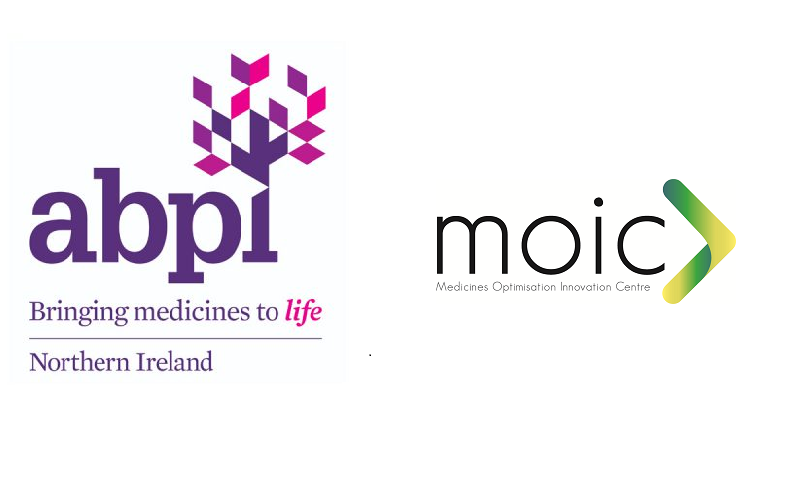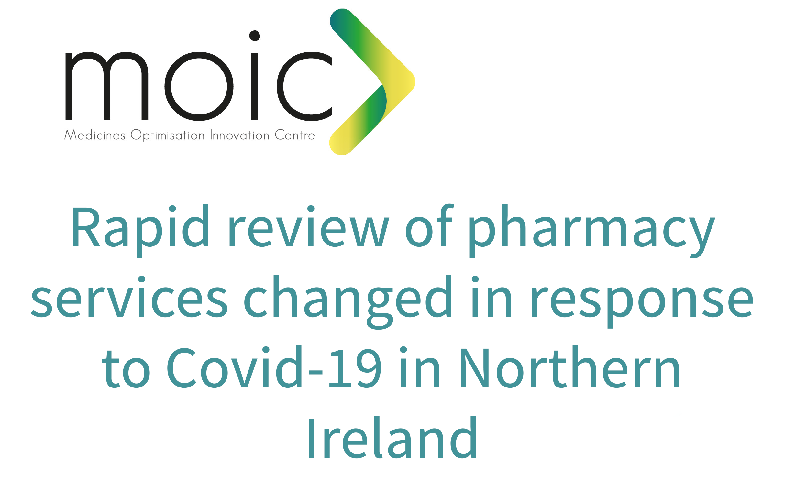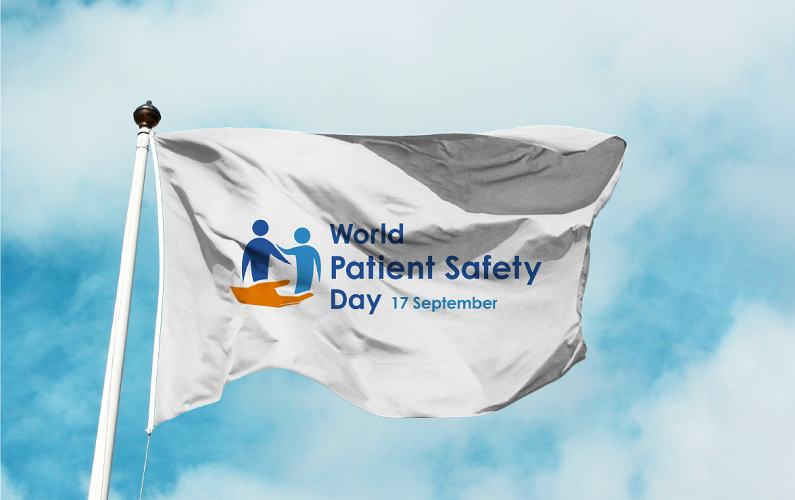
by Edel O'Sullivan, | Oct 8, 2020 | News Release, Press
Northern Ireland’s Medicines Optimisation Innovation Centre (MOIC) and The Association of the British Pharmaceutical Industry (ABPI) have announced a new partnership to deliver ‘triple win’ benefits to patients, NI Health and Social Care (HSC) and the economy.
Starting with the bold aim of eradicating Hepatitis C in Northern Ireland, the organisations will put in place a new framework to improve patient access to the latest treatments, make more effective use of HSC resources and increase cross-sector medical research.
The partnership agreement signed by MOIC and the ABPI will create a new process whereby HSC will look to industry to help tackle major health challenges which can be addressed by innovative treatments.
Industry will also be able to propose new approaches to unmet health need, which can then be rapidly rolled out across Northern Ireland. One of the first areas the partnership will tackle is Hepatitis C, known as the ‘silent epidemic’ because many sufferers do not know they are infected and therefore do not seek treatment.
Hepatitis C can cause serious liver damage, cancer, and premature death. Incidence is on the rise in Northern Ireland, with cases increasing by 53% in 2019 against the previous ten year average. Untreated, the disease is associated with major costs and productivity losses, estimated for the UK at between £210-£427 million by 2035.
However, a new generation of treatments known as direct acting antivirals can cure the condition, creating a real hope that it can be eradicated as a public health challenge. Maximising access to these treatments in Northern Ireland will is key to delivering that goal and will be an early focus of the new ABPI-MOIC partnership.
Mike Scott, Director of MOIC said:
“We have a long-standing positive relationship with the ABPI and look forward to the benefits that our new partnership will bring. “I’m delighted that tackling Hepatitis C will be one of our first goals. In 2016, the UK signed up to the World Health Organization Global Health Sector Strategy on Viral Hepatitis, which commits participating countries to eliminate the disease as a major public health threat by 2030. We believe our new partnership with the ABPI will help create the conditions for NI to exceed that target.”
Cathy Harrison, Chief Pharmaceutical Officer NI said:
“The Department of Health welcomes the new partnership between MOIC and the ABPI. We believe it will ensure that collaboration is focused on where it can add most value in making innovation as widely available to patients as possible.”
Colette Goldrick, Director ABPI Northern Ireland and NHS Engagement said:
“Cross-sector partnership agreements have already proved effective in GB, and we are delighted to be working with MOIC to bring the same benefits to Northern Ireland.
“Our partnership with Greater Manchester for example has already led to three substantial projects in the fields of Hepatitis C, cancer, and cardiovascular disease, matching NHS needs with industry offers. We want to do the same in Northern Ireland.”

by Edel O'Sullivan, | Sep 24, 2020 | News Release, Press
MOIC complied this report and captured the changes to pharmacy services that were implemented in the Health and Social Care (HSC) service in Northern Ireland during the first wave of the Covid-19 pandemic, between March and May 2020.
It describes the wide range of interventions by pharmacy teams that were necessary to ensure that patients and the public had access to medicines and pharmaceutical care throughout the emergency.
The review makes a number of recommendations for actions needed to prepare for future waves of the pandemic and inform changes needed to support the longer term rebuilding of HSC services.
To view the report in full click here.

by Edel O'Sullivan, | Sep 17, 2020 | News Release, Press, Uncategorized
It’s World Patient Safety Day and it is a day to highlight that patient safety is at the forefront of everything we do.
MOIC is the only dedicated medicines optimisation centre in Europe and we work across Europe to improve medicines use, leading to better patient care. We provide research, project management and offer professional expertise on projects that will improve patient safety through correct medicines use. We engage with partners across Europe and throughout the world on best practice and bring his learning back to Northern Ireland.
Today on World Patient Safety Day, take a look at some of our recent publications, the first examines how medicine optimisation clinics can reduce hospital readmission and the second looks at critical care drug use in ICU during Covid. Both these projects had patient safety as the key driver.
Medicine Optimisation reducing Hospital re-admission
This work looked at how educating patients on their medicine use through dedicated clinics could lead to fewer hospital patients.
https://themoic.hscni.net/medicine-optimisation-reducing-hospital-readmission/
Results
- Readmission rate reduction at 30 days was 9.6%
- Reduction in multiple readmissions over 180-days was 29.1%
Critical Care Drug Requirements
https://themoic.hscni.net/critical-care-drug-requirements-during-covid-19/
The main aim of this work was to develop a process to estimate critical care drug requirements to robustly inform regional procurement planning and preparedness in response to the COVID-19 pandemic. The objectives were to identify critical care drugs required, obtain patient usage data and consider current regional practice to establish the requirement.

by Edel O'Sullivan, | Sep 9, 2020 | News Release, Press
There is a major drive within healthcare to reduce patient readmissions to hospital. MOIC has led research on how a medicines optimisation clinic can change readmission to hospital rates and lead to better patient care.
The research focused on assessing the impact of a post-discharge, pharmacist-led medicines optimisation clinic on readmission within the respiratory and cardiology wards
Adult patients with acute unplanned admission to medical wards were invited to attend clinic to review their medicines and educate patients on proper use of their medicines.
Results
- Readmission rate reduction at 30 days was 9.6%
- Reduction in multiple readmissions over 180-days was 29.1%
A positive impact was also demonstrated in relation to patient beliefs about their medicines and medication adherence.
Anita Hogg Northern Health and Social Trust
“Having delivered the medicines optimisation clinic and supported patients in the safe and effective use of their medicines, I’m delighted that this paper has been published, reinforcing the benefits of a dedicated medicines optimisation clinic to patient care after discharge from hospital”
The post-discharge medicines optimisation clinic was beneficial from a patient care and cost perspective.
Full paper can be found here.

by Edel O'Sullivan, | Jul 29, 2020 | News Release, Press
The critical care drug requirements paper by MOIC has now been published in EJHP and can be accessed via this link:
http://ejhp.bmj.com/cgi/rapidpdf/ejhpharm-2020-002368
The main aim of this work was to develop a process to estimate critical care drug requirements to robustly inform regional procurement planning and preparedness in response to the COVID-19 pandemic. The objectives were to identify critical care drugs required, obtain patient usage data and consider current regional practice to establish the requirement.
Assuring the availability of critical medicines at the point of need during a pandemic is particularly complex. The balance between ‘normal’ supply and demand is eroded as demand escalates and organisations may order excess stock to maintain continuity of supply, placing further pressure on already constrained medicines and the supply chain.
A collaborative approach to planning is required, between manufacturers, wholesalers/suppliers, health departments, Trusts and medicines procurement specialists. A key component of this is to estimate critical drug requirements to meet demand, both currently and for the anticipated surge.
As a result of this work a regional database was constructed and used to produce a model for calculating approximate critical drug requirements. The model was used to map critical drug requirements to available stock in Trusts and wholesalers/suppliers, enabling the identification of treatment capacity for these medicines regionally, both currently and for projected surges. Data have also been used in the preparation of weekly regional situation reports for onward reporting to the HSC Board and the Department of Health.
Cathy Harrison, Chief Pharmaceutical Officer at the Department of Health, commenting ‘I very much welcome the development of the supply and demand model for critical care medicines and I support its use for managing and monitoring other groups of essential medicines and healthcare supplies at risk of potential shortages. The model provided essential information and assurance during the response to COVID-19 and I commend all those involved in its development’.
Pharmaceutical interventions and medicines optimisation are essential components of the healthcare response to COVID-19. Medicines are a clinical priority and are required to support both patients and front-line clinical staff in their efforts to deal with the virus and to optimise patient care. As a result, there has been an unprecedented global demand on supportive medicines, particularly in critical care.
Interview with Anita Hogg

by MOIC | Jun 1, 2020 | News Release, Press
The Covid 19 pandemic has meant that we have all had to adjust to new ways of working and MOIC are focusing their efforts on helping the region respond to the pandemic through research, assessment and evaluation of key areas. A number of colleagues work with MOIC in this area, including those from the emergency planning team, Ulster University and the Department of Health
The expertise at MOIC was called upon to lead a number of regional initiatives needed to help maintain access to critical healthcare supplies in high demand due to COVID-19. This includes:
· MOIC supporting regional efforts to secure additional PPE by providing technical assessment support to BSO.
· MOIC developing demand modelling systems for oxygen supplies in hospitals and the community, critical care medicines used in intensive care, palliative care medicines, renal replacement therapies, essential consumables for oxygen and ventilators.
We are also working closely with our colleagues in Healthcare Analytics to explore options around tagging of vital critical care equipment including ventilators and other essential equipment.
All of these projects are ongoing and we are hoping to publish findings in the near future.
Page 12 of 16«1011121314»






